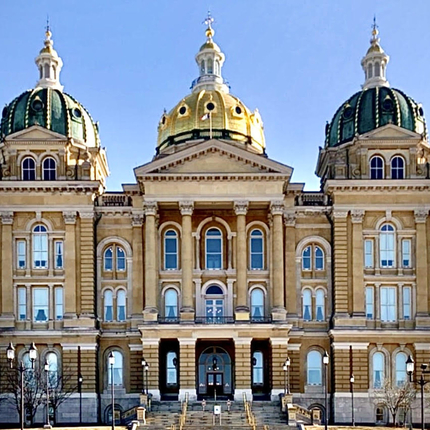By Kate Hansen, former staff member
Lawmakers in Iowa will debate a host of issues during the 2023 legislative session, including energy and water quality.
Relevant developments concerning priority legislation will be shared via email. Visit cfra.org/signup or email [email protected] for updates.
What do you think?
Let us know your input on these priorities and tell us about other state issues that are important to you. Are you interested in writing a letter to your legislator or even testifying at the state capitol? Let us know.
Water quality
Watershed Management Authorities (WMAs) were established in 2010 by the Iowa Legislature. They are collaborative entities with successful track records, local connections, and demand for future projects. Reaching Iowa’s water goals will be dependent on an all-hands-on-deck approach and, with staff in place, WMAs can play an important and unique role.
The most successful WMAs have a watershed coordinator responsible for managing and implementing projects. However, the recent expiration of federal grant funding has resulted in several losing their coordinators, and more across the state are vulnerable to a similar fate. After two years of seeing legislative efforts to address this problem fall short, we will now turn our focus to ensuring funds for coordinator support are included in the state's budget.
Renewable energy
A growing number of counties have become resistant to renewable energy development. This has inspired legislative activity on two competing fronts. Anti-renewable activists support onerous statewide standards that would effectively prohibit development. Environmental activists support removing approval power from local decision makers in favor of bureaucrats in Des Moines.
We do not believe the Legislature should adopt a one-size-fits-all approach designed to limit development statewide. We also do not believe local land-use decisions should be made by a statewide board of appointed officials. Both would undermine local control and remove the ability of rural residents to govern themselves. We will advocate for solutions that provide data and guidance to local officials while making it easier for them to put this information to work.





